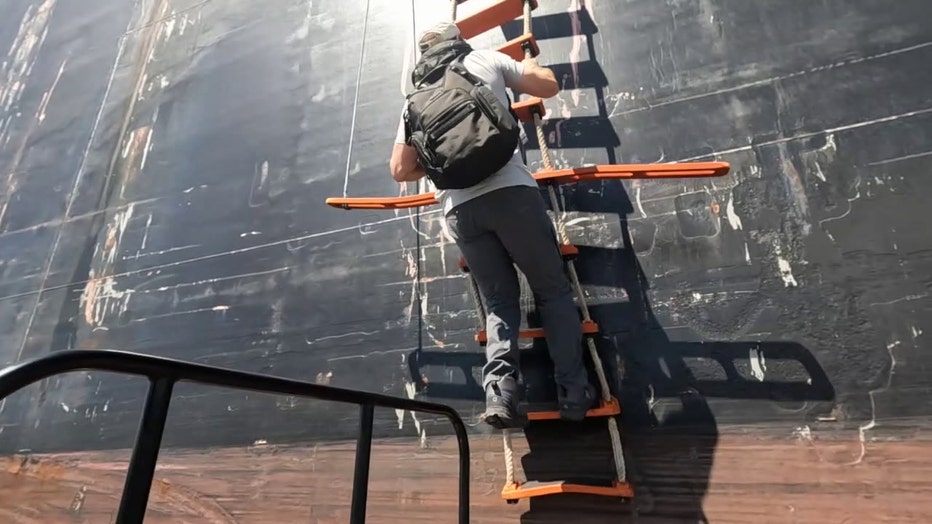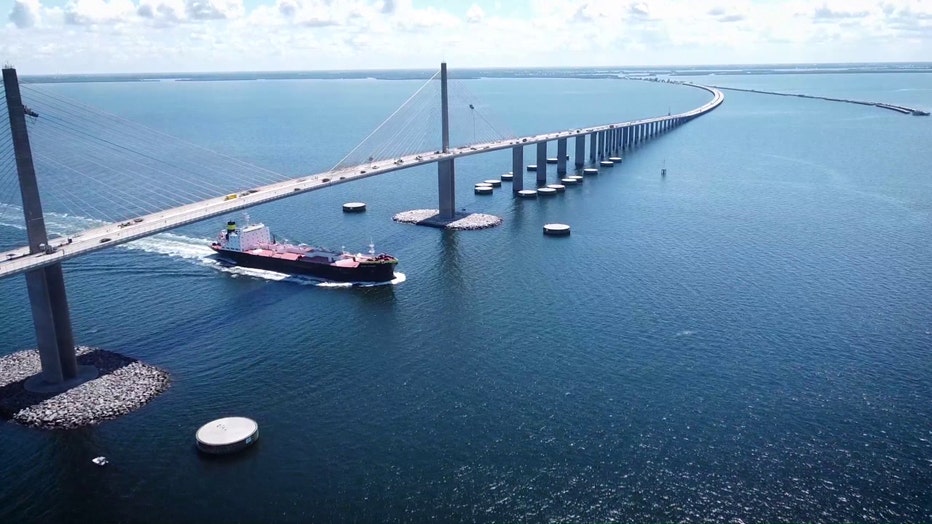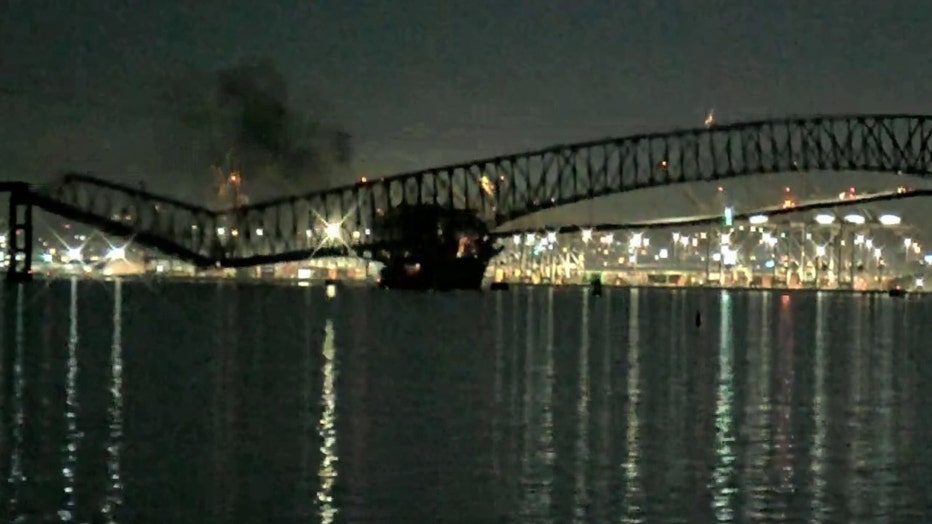Baltimore bridge collapse: Harbor pilots play integral role in emergency situations with ships at ports
TAMPA, Fla. - As the investigation into the cargo ship crash and collapse of the Francis Scott Key Bridge in Baltimore, harbor pilots and mariners around the country are watching.
Experts said harbor pilots are one of the key navigators on ships coming in and out of ports. Terry Fluke, the executive director of the Tampa Bay Pilots Association, said this type of crash is something they train to prevent every day.
He said pilots are an integral part of the operation, working at the helm alongside the captain of a ship.
RELATED: 6 presumed dead in Baltimore bridge collapse, says employer

"It’s our primary responsibility as pilots to make sure this doesn't happen," Fluke said.
He said pilots come on board a ship as it’s coming in and heading out.
"There are two different types of experience there," Fluke said. "The captain has experience with his vessel. The pilot has the experience with the bay or the waterway."

Pilots are experts on the waterways and channels. In Tampa Bay, they navigate ships through the many channels, the Skyway Bridge and Port Tampa Bay.
READ: Baltimore bridge collapse echoes 1980 Sunshine Skyway Bridge disaster in Tampa Bay
"Our motto is 100% right," Fluke said. "One hundred percent of the time, there's just no margin for error."
Pilots have extremely challenging jobs. Fluke said they train for a multitude of factors – many of which are out of their control.

He said pilots train to handle narrow or shallow channels, weather events and traffic out on the water.
"Ships are similar to airplanes and automobiles," Fluke said. "They have mechanical failures. They break down."
In Baltimore, the ship that crashed into the Francis Scott Key Bridge and caused the collapse is reportedly 985 feet long. Fluke said vessels of this size travel through Tampa Bay all the time.
MORE: Baltimore bridge collapse 'brings back so many memories' for Bay Area rescue diver

"You're moving along 10 or 12 knots, and you have a mechanical failure, the best you can do is try and keep her straight in the channel."
Fluke said the training and expertise of pilots are imperative in situations like these. He said you can’t stop boats or divert of this size quickly.
"You've got a qualified individual that knows that port, is trained in that port, and hopefully will know how to react, to mitigate any mechanical issues or weather issues, to deal with it," he said.
The investigation into the exact cause of the crash in Baltimore is underway.
WATCH FOX 13 NEWS:
SIGN UP: Click here to sign up for the FOX 13 daily newsletter

